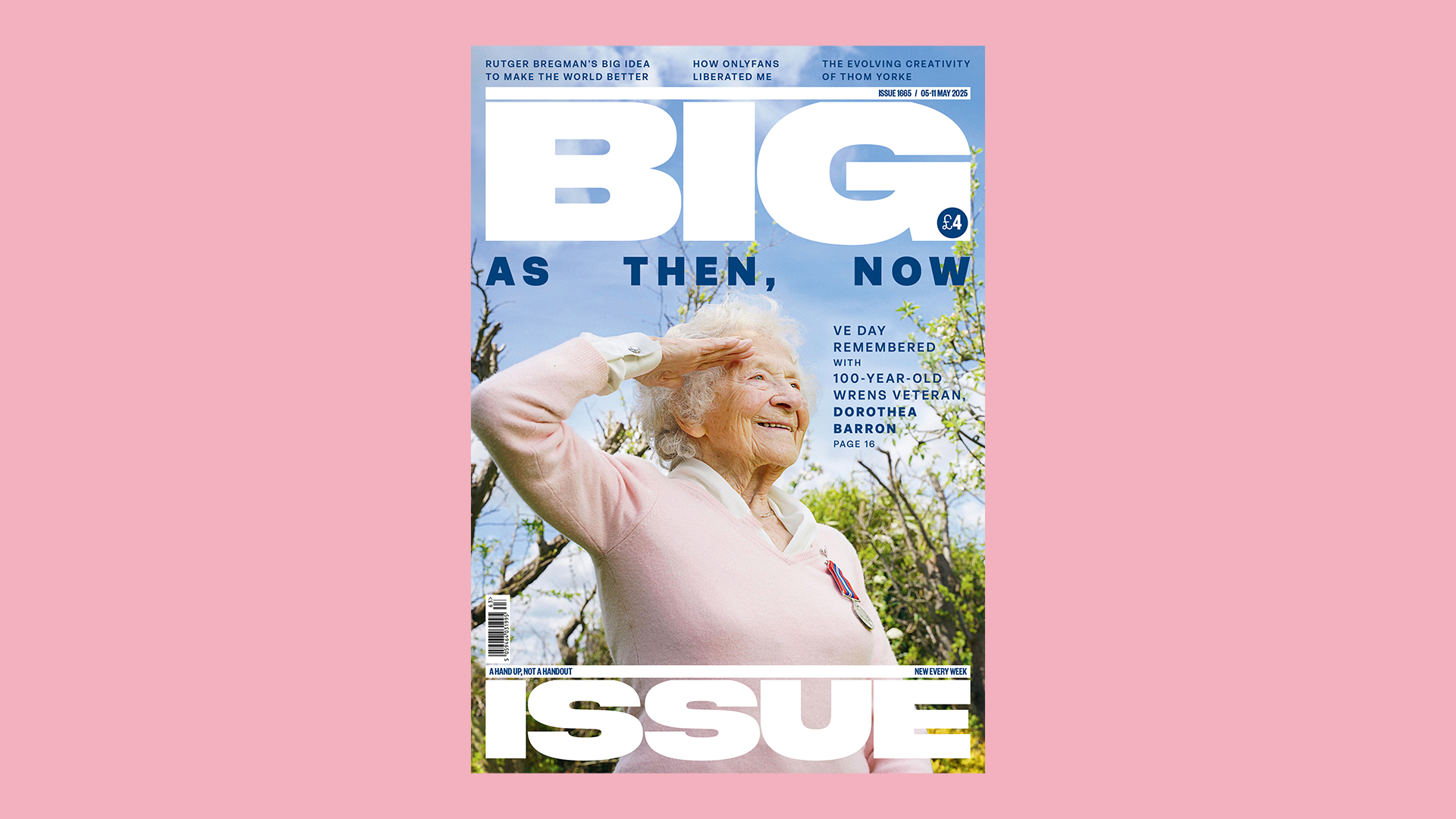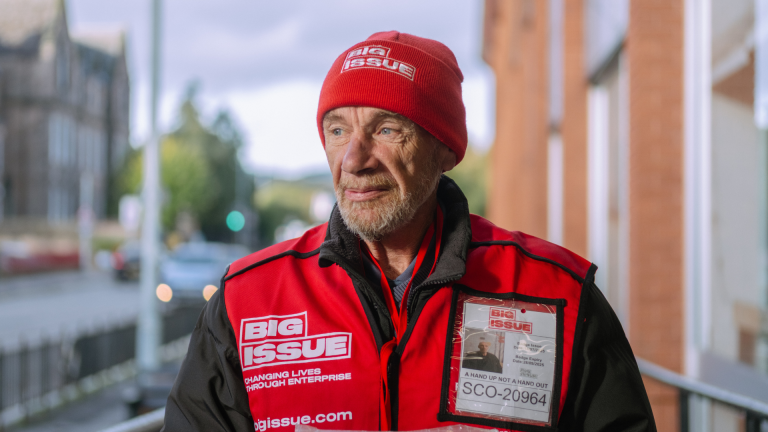When the Second World War ended and the grim contents of Hitler’s bunker were picked over, one surprising thing was discovered. Among the papers was a copy of Social Insurance and Allied Services, better known to you and me as the Beveridge Report.
William Beveridge’s 1942 report, decrying want and squalor among the five giant evils of British society, had been a smash hit in Britain, selling hundreds of thousands of copies and laying the foundations for the welfare state. Keen to get the message of reconstruction out, the government had the report translated and airdropped over Nazi-occupied Europe.
If Britain could defeat Hitler, Beveridge argued, it could easily defeat poverty. This week, as we mark 80 years since VE Day, Europe may be free, but poverty remains resolutely with us.
What’s inside this week’s Big Issue?
100-year-old Dorothea Barron lied about her height to join the Wrens – the Women’s Royal Naval Service – during WWII. She reflects on a remarkable life
“VE Day was absolutely overwhelming. We felt as though the whole country had come together to save us from the Nazis. We had fought back and made sure they hadn’t put a foot in England, the bastards. It was a feeling of overwhelming relief. We’d spent every ha’penny fighting the Nazis,” Barron tells Adrian Lobb.
“As soon as the war finished, we were told to go back to the kitchen. It was so demoralising. We were totally ignored and disregarded, treated as non-people after the war.”
From kitchen stove to combat zone, resourceful chefs in Ukraine are keeping the population fed
War forces people to get creative to keep the population fed in times of shortages and rationing. Recipes from World War II used parsnips in place of bananas and bulked out puddings with potato.





